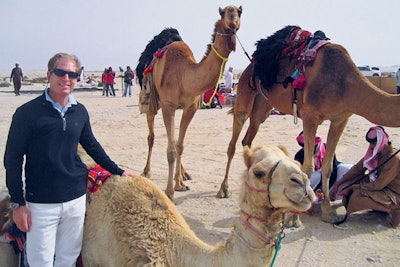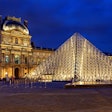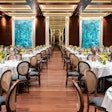
John Schwartz is the president and C.E.O., Abu Dhabi and Qatar, of EventQuest ME. Schwartz will speak about his experience in the Middle East at the Event Innovation Forum in New York on October 24.
I moved to Dubai for the fall and winter with my wife and then-18-month-old son in September 2008. After running an event production company in New York for 22 years, working with clients like Mercedes-Benz, Citigroup, and Dyson, I wanted to break into the Middle East market. But I knew absolutely nothing about the region except that at the time they were spending lots of money on events, as the United Arab Emirates was one of the fastest-growing countries in the world.
I went to Dubai because we were working on the launch of the Hyderabad airport in India, where it seemed very difficult for ex-pats to set up temporary living. Dubai being a few hours away allowed me the opportunity to explore the landscape and start to network, essentially killing two birds with one stone.
After four months of back and forth to Abu Dhabi, we won one of the most prestigious events in the U.A.E. To say that we were put through the ringer is an understatement. While we were pitching to the chairman of the company, we said we had a local office, bank accounts, and a full staff—none of which was true at the time. We were cowboys taking one of the biggest risks of our careers.
Following final negotiations with this company’s procurement department, all of a sudden they wanted a big cut in the budget. By this point, we had already signed a one-year lease for an apartment on the famous Palm and my family was set to join me in three weeks. After we threatened to walk and I called the chairman myself to tell him we weren’t coming down any more on our price, we embarked on our adventure of doing business in the Middle East.
Working there involved many cultural nuances. Typically at any meeting with a local you are offered tea. What you don’t realize at first is that if the party is no longer interested in meeting with you, when they go to refill your cup, they will fill it only halfway.
These are small signs with big consequences. As a foreigner you learn, and when you think you have it down, you learn more. I once met two gentlemen at their hotel in Dubai for lunch. The restaurant was closed so they asked me to go to their room, which was odd for a first meeting. There I met two large men in the full traditional dress, with some other hangers-on. I was asked to sit between them, which was even more unusual. They asked if I was ready for lunch—a big silver urn on a table with plates was positioned in front of us. Inside was a full goat with all the trimmings. Using their hands, they put a large portion on my plate.
Later they said I wasn’t eating enough and gave me another big portion. The climax was when they said, as an honored guest, I should eat the brain, which they scooped out of the goat’s head with their fingers. Not wanting to insult anyone, I ate it and remarked on how buttery it tasted.
Many meetings with local Emirati are outside of an office. Once at a Starbucks, an older gentleman asked me how much I knew about Islam. I gave what I thought was a pretty good answer. Two hours later I was still being educated and asked to repeat prayers from the Koran in Arabic—still in the middle of Starbucks. I did, of course. After I passed the exercise, we proceeded to talk about business.
As a company, we learned to throw our American tendencies out the door and embrace whatever lay in our path. Relationships have to be won and nurtured on many levels within an organization. While most clients are ex-pats, the locals control the procurement process. In four years of living there, I only encountered one ex-pat in procurement.
Relationship-building can take so long partly because, in the heyday of spending there, many foreign companies came over and made as much money as they could and left. Now a foreigner must build trust over time.
Typically all proposals are send-ins, which differs greatly from the U.S., where we usually pitch in person. So the way you put your pitch together has to be very succinct and easily understandable to both ex-pats and locals who do the initial review.
The second-most challenging thing is figuring out the budget for each pitch, as few companies give any parameters, although that is changing. You can imagine how hard conceiving an event for 3,000 people is when the R.F.P. looks as if you will need to spend millions only to find out they have $500,000. This is one of the most important factors in winning jobs. You have to understand the client, the market, and your competitors so you don’t price yourself out of the job. We made that mistake more than a few times before we learned how to play the game.
The events themselves are different, too. Most spending in the U.A.E. is done by the government, so you need to adjust your expectations as compared to working with a Fortune 500 company. In some cases you give a 5 percent upfront payment with your proposal, just to show you’re serious about bidding. You typically have to have a bank guarantee for the first payment if you win the job, which severely hampers cash flow. They do this to ensure they have leverage in case a company doesn’t deliver on their promises, even though they also have the ability not to pay the remainder of what they owe. If all goes well they send a letter to the bank releasing the funds in the account.
Many—if not most—of the top executives running these entities are young and bright. While it would be rare to meet a U.S. company chairman under 40 years of age, in the U.A.E. that is almost entirely who runs both the government and private companies. The good news is that this talent is educated mainly in the U.S. and Europe, and understands the value of creativity and what western companies bring to their country. This is probably the biggest reason we have done some of the most important jobs in the U.A.E.: a multimillion-dollar exhibit space for the Urban Planning Commission to showcase what Abu Dhabi can look like by 2030, and the Zayed Future Energy Prize, where we produced seven documentaries as part of an award ceremony that happened during the World Future Energy Summit attended by royals and heads of state from the around the world.
More information about the Event Innovation Forum speakers, topics, and registration is here.



















